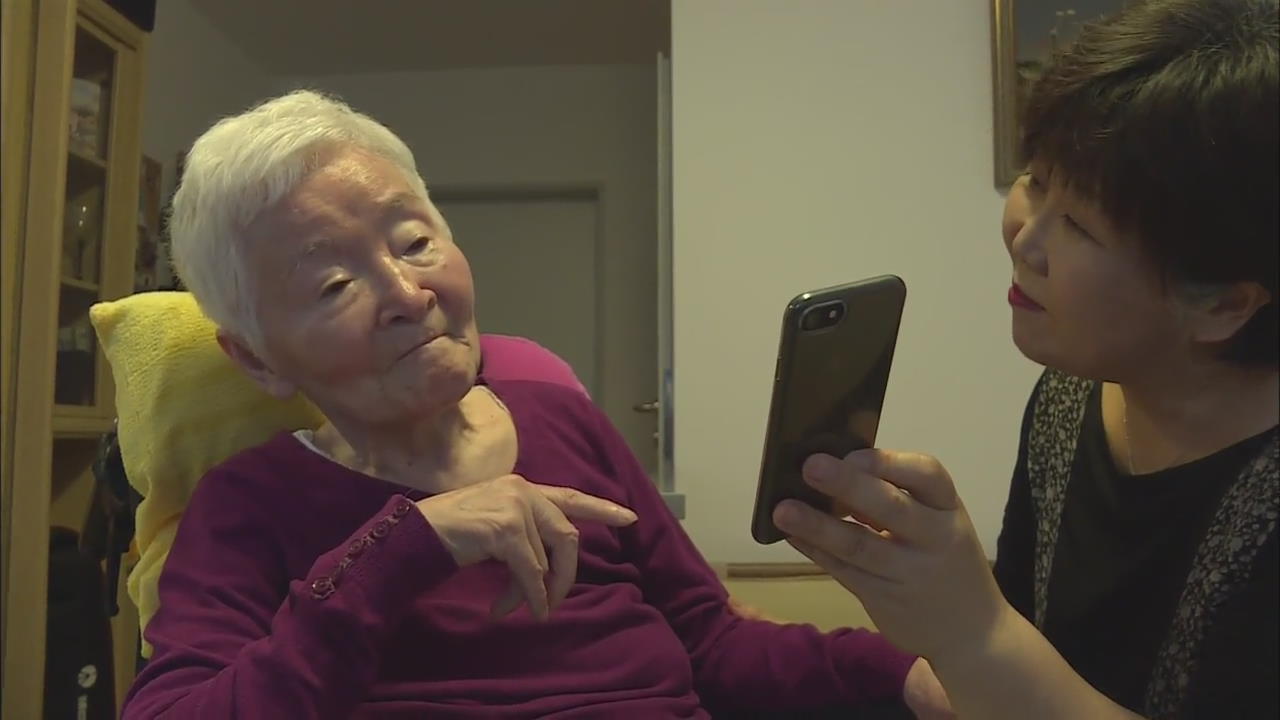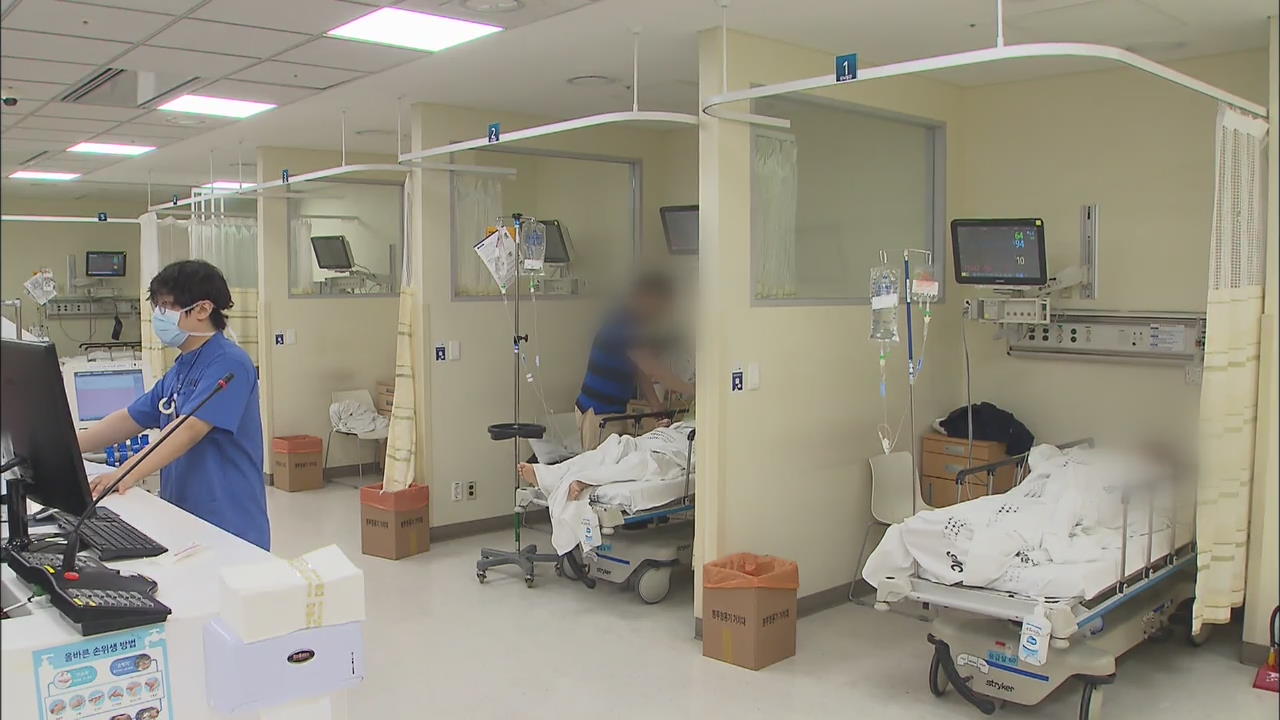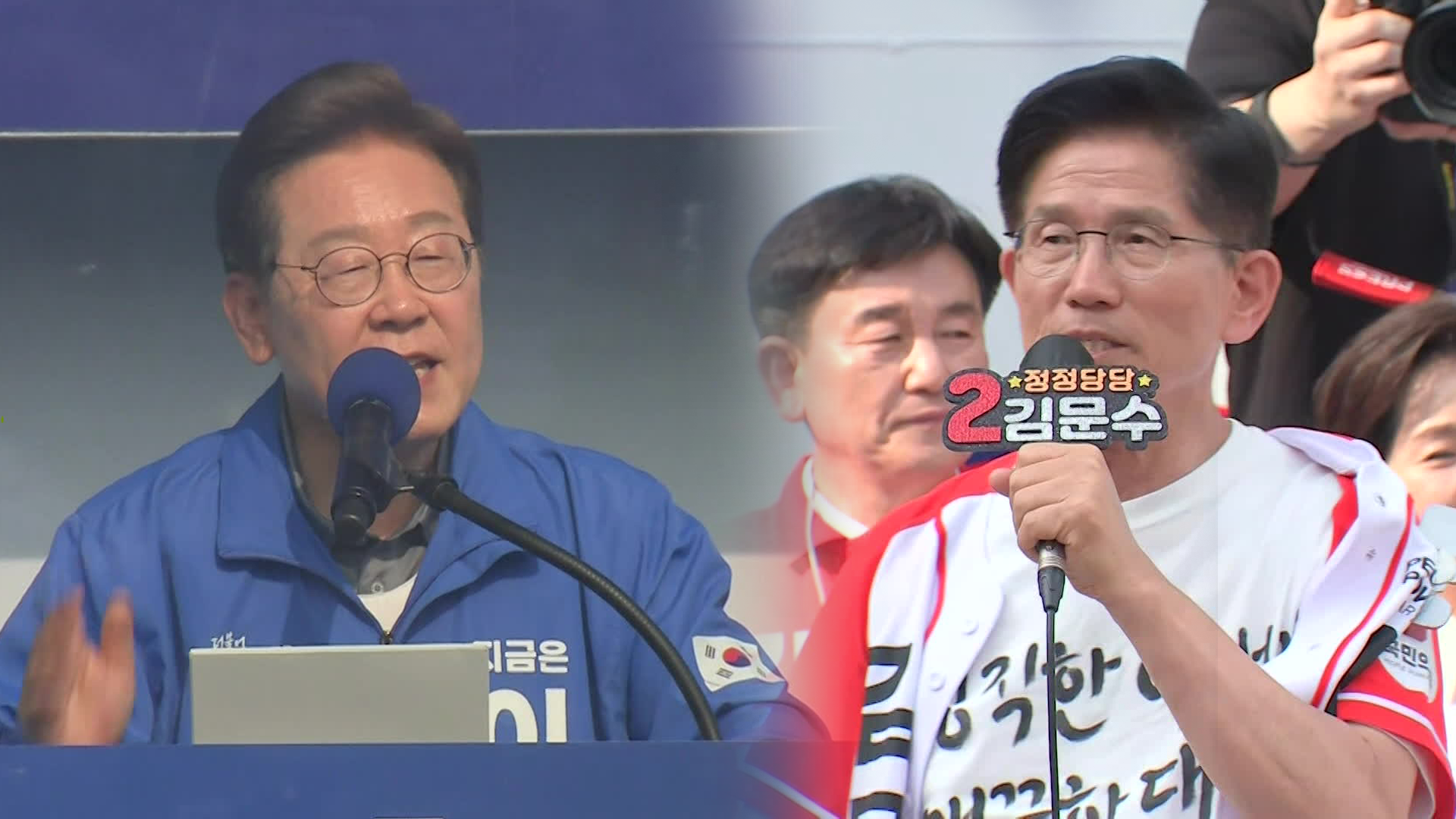Suffering Dementia
입력 2017.07.10 (14:19)
수정 2017.07.10 (14:24)
읽어주기 기능은 크롬기반의
브라우저에서만 사용하실 수 있습니다.
[Anchor Lead]
A growing number of former Korean nurses and miners who were dispatched to Germany in the 1960s and 70s are suffering from dementia. Battling the disease is particularly difficult to them because of the language barrier and other challenges.
[Pkg]
As a familiar children's song starts playing, 82-year-old Kim Hee-sook begins to cry. Kim was dispatched to Germany as a nurse more than four decades ago. These days she cannot move around on her own because of dementia. Having no family to take care of her, Kim lives in a nursing home in Germany. She faces many challenges there because of the language barrier and foreign food. Her only joy is eating Korean food that local volunteers bring her sometimes.
[Soundbite] Choi Chun-mi(Volunteer) : "The first time she tried our kimchi, she was deeply moved. She loved it."
This 70-year-old woman surnamed Sohn was also dispatched to Germany as a nurse. She also suffers from dementia. Her biggest obstacle is communicating with the staff at the German nursing home.
[Soundbite] Kim Mi-seon (Volunteer) : "It's difficult for her to say to the staff what she wants to eat. It's heartbreaking. She cannot speak well now."
The first-generation Koreans in Germany dedicated their youth to work in a foreign land to help their home country. But now they have aged, and many are battling disease.
[Soundbite] Bong Ji-eun(CEO of Kultursensible Altenhilfe HeRo) : "The first-generation elderly will be all in the high-risk dementia group five to ten years from now. Measures are needed to prepare for that."
Efforts to establish a nursing facility for the first-generation Korean Germans are underway, but raising funds has been a challenge.
A growing number of former Korean nurses and miners who were dispatched to Germany in the 1960s and 70s are suffering from dementia. Battling the disease is particularly difficult to them because of the language barrier and other challenges.
[Pkg]
As a familiar children's song starts playing, 82-year-old Kim Hee-sook begins to cry. Kim was dispatched to Germany as a nurse more than four decades ago. These days she cannot move around on her own because of dementia. Having no family to take care of her, Kim lives in a nursing home in Germany. She faces many challenges there because of the language barrier and foreign food. Her only joy is eating Korean food that local volunteers bring her sometimes.
[Soundbite] Choi Chun-mi(Volunteer) : "The first time she tried our kimchi, she was deeply moved. She loved it."
This 70-year-old woman surnamed Sohn was also dispatched to Germany as a nurse. She also suffers from dementia. Her biggest obstacle is communicating with the staff at the German nursing home.
[Soundbite] Kim Mi-seon (Volunteer) : "It's difficult for her to say to the staff what she wants to eat. It's heartbreaking. She cannot speak well now."
The first-generation Koreans in Germany dedicated their youth to work in a foreign land to help their home country. But now they have aged, and many are battling disease.
[Soundbite] Bong Ji-eun(CEO of Kultursensible Altenhilfe HeRo) : "The first-generation elderly will be all in the high-risk dementia group five to ten years from now. Measures are needed to prepare for that."
Efforts to establish a nursing facility for the first-generation Korean Germans are underway, but raising funds has been a challenge.
■ 제보하기
▷ 카카오톡 : 'KBS제보' 검색, 채널 추가
▷ 전화 : 02-781-1234, 4444
▷ 이메일 : kbs1234@kbs.co.kr
▷ 유튜브, 네이버, 카카오에서도 KBS뉴스를 구독해주세요!
- Suffering Dementia
-
- 입력 2017-07-10 14:20:41
- 수정2017-07-10 14:24:53

[Anchor Lead]
A growing number of former Korean nurses and miners who were dispatched to Germany in the 1960s and 70s are suffering from dementia. Battling the disease is particularly difficult to them because of the language barrier and other challenges.
[Pkg]
As a familiar children's song starts playing, 82-year-old Kim Hee-sook begins to cry. Kim was dispatched to Germany as a nurse more than four decades ago. These days she cannot move around on her own because of dementia. Having no family to take care of her, Kim lives in a nursing home in Germany. She faces many challenges there because of the language barrier and foreign food. Her only joy is eating Korean food that local volunteers bring her sometimes.
[Soundbite] Choi Chun-mi(Volunteer) : "The first time she tried our kimchi, she was deeply moved. She loved it."
This 70-year-old woman surnamed Sohn was also dispatched to Germany as a nurse. She also suffers from dementia. Her biggest obstacle is communicating with the staff at the German nursing home.
[Soundbite] Kim Mi-seon (Volunteer) : "It's difficult for her to say to the staff what she wants to eat. It's heartbreaking. She cannot speak well now."
The first-generation Koreans in Germany dedicated their youth to work in a foreign land to help their home country. But now they have aged, and many are battling disease.
[Soundbite] Bong Ji-eun(CEO of Kultursensible Altenhilfe HeRo) : "The first-generation elderly will be all in the high-risk dementia group five to ten years from now. Measures are needed to prepare for that."
Efforts to establish a nursing facility for the first-generation Korean Germans are underway, but raising funds has been a challenge.
A growing number of former Korean nurses and miners who were dispatched to Germany in the 1960s and 70s are suffering from dementia. Battling the disease is particularly difficult to them because of the language barrier and other challenges.
[Pkg]
As a familiar children's song starts playing, 82-year-old Kim Hee-sook begins to cry. Kim was dispatched to Germany as a nurse more than four decades ago. These days she cannot move around on her own because of dementia. Having no family to take care of her, Kim lives in a nursing home in Germany. She faces many challenges there because of the language barrier and foreign food. Her only joy is eating Korean food that local volunteers bring her sometimes.
[Soundbite] Choi Chun-mi(Volunteer) : "The first time she tried our kimchi, she was deeply moved. She loved it."
This 70-year-old woman surnamed Sohn was also dispatched to Germany as a nurse. She also suffers from dementia. Her biggest obstacle is communicating with the staff at the German nursing home.
[Soundbite] Kim Mi-seon (Volunteer) : "It's difficult for her to say to the staff what she wants to eat. It's heartbreaking. She cannot speak well now."
The first-generation Koreans in Germany dedicated their youth to work in a foreign land to help their home country. But now they have aged, and many are battling disease.
[Soundbite] Bong Ji-eun(CEO of Kultursensible Altenhilfe HeRo) : "The first-generation elderly will be all in the high-risk dementia group five to ten years from now. Measures are needed to prepare for that."
Efforts to establish a nursing facility for the first-generation Korean Germans are underway, but raising funds has been a challenge.
이 기사가 좋으셨다면
-
좋아요
0
-
응원해요
0
-
후속 원해요
0

















이 기사에 대한 의견을 남겨주세요.